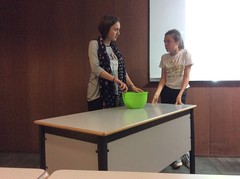Acting is a craft that requires tremendous dedication, continuous learning, and relentless passion. Whether on stage, in a film, or a TV series, an actor assumes various roles that reflect diverse characters and life situations. These acting roles are instrumental in bringing scripts to life and form the very essence of any performance or production.
But what are these roles, and equally significant, how to become an actor? Let’s dive in for a comprehensive journey.
Understanding Acting Roles
An acting role is essentially a character played by an actor in a drama, film, or any other form of media, conveying a story through their actions, dialogue, and emotions. There are several types of roles in acting, but the three most common ones are: leading, supporting, and minor roles.
- Leading Roles: These are the main characters around whom the story revolves. They have the most lines and stage time. Actors in leading roles carry the weight of the story on their shoulders.
- Supporting Roles: Characters in supporting roles are there to help tell the story of the leading characters. These roles might not be as prominent as lead roles, but they’re crucial to the development of the plot and the lead character’s story.
- Minor Roles: These characters appear for a short time in the story but play a vital part in the narrative. They could be a passerby who sparks a significant event or a bartender who shares a piece of crucial information. Despite their brief appearance, they add depth and realism to the story.
Acting Methods
An actor often employs certain acting methods or techniques to authentically bring a role to life. These techniques involve methods of training, preparation and performance developed by theatre practitioners. Some well-known methods include the Stanislavski system, Meisner technique, Method Acting, and more. Each method is unique in its own way and provides a foundation upon which an actor builds their interpretation of a role.
How to Become an Actor
The journey on how to become an actor begins with a deep and relentless love for the craft. Here are some steps to set you on the path of your acting journey.
- Education: A formal education in drama or film studies often provides foundational skills and knowledge about the industry and acting techniques.
- Acting Classes and Workshops: These provide hands-on experience and opportunity to learn from established actors and directors.
- Auditions: Auditioning tests your skills and helps gain exposure. It is a learning process and helps in understanding one’s strengths and areas for improvement.
- Agent: Having an experienced agent can open doors to larger opportunities and roles that you might not access alone.
Finding Your Role
Actors can spend years honing their skills before they find a role that really showcases their craft. It’s about finding and understanding your unique strengths and match them with the right roles. It’s also about accepting the trials and tribulations of the journey with resilience. Acting role is not just about fame or success—it’s an art, and like every art, it demands passion, dedication, constant learning, and a deep understanding of the human experience.
Conclusion
The journey to becoming an actor and assuming varied acting roles is fascinating, rewarding, and challenging in equal measures. It’s a vocation that demands continual learning and practice. But for those willing to take up the challenge, there is a world of roles and characters waiting to be brought to life.






